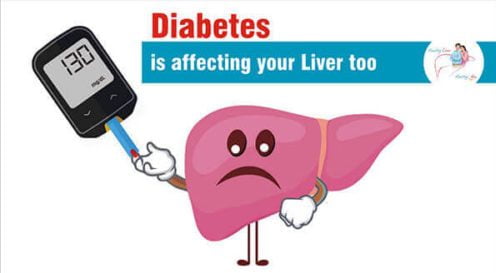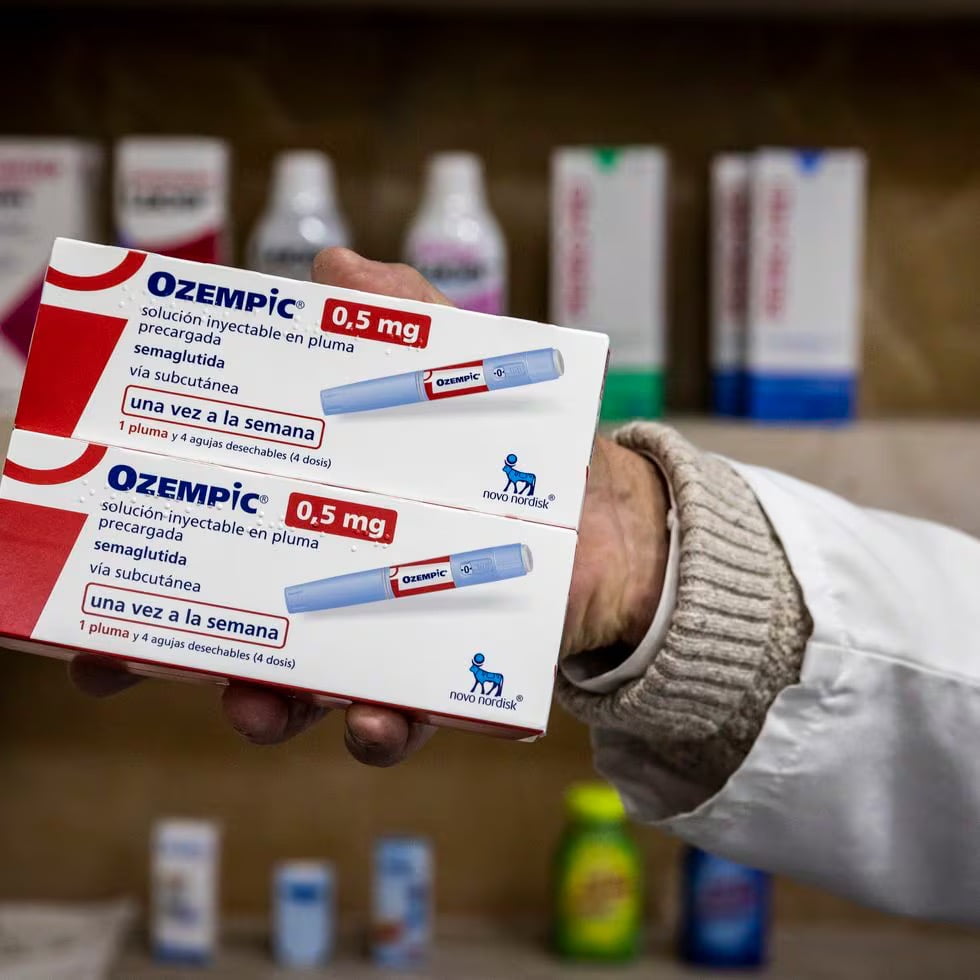Liver Disease and Diabetes: Understanding the Connection

Diabetes and liver disease are interconnected conditions that can significantly impact overall health. At InsulinReview, we delve into the complex relationship between liver disease and diabetes, exploring how these conditions influence each other and what it means for diabetes management. This article provides an in-depth analysis, backed by scientific evidence and expert insights, to help you understand and navigate these health challenges. Fatty Liver Disease and Diabetes Management Fatty liver disease diabetes management is a critical aspect of care for individuals with diabetes. Non-alcoholic fatty liver disease (NAFLD) is commonly found in people with type 2 diabetes and is characterized by excess fat stored in the liver. Effective management involves: Liver and Diabetes: A Bidirectional Relationship The relationship between the liver and diabetes is bidirectional. The liver plays a crucial role in glucose metabolism, and diabetes can adversely affect liver function. Conversely, liver disease can complicate diabetes management by altering glucose production and insulin sensitivity. Does Diabetes Affect the Liver? Does diabetes affect the liver? Absolutely. Chronic hyperglycemia in diabetes can lead to liver conditions such as NAFLD and non-alcoholic steatohepatitis (NASH). Elevated blood sugar levels contribute to fat accumulation in the liver, inflammation, and fibrosis, potentially progressing to cirrhosis or liver cancer over time. Can Liver Disease Cause High Blood Sugar? Can liver disease cause high blood sugar? Yes, liver disease can contribute to dysregulated blood glucose levels. The liver’s role in glucose production and storage becomes compromised in liver disease, leading to increased blood sugar levels and insulin resistance. This can make diabetes management more challenging. Can Stress Cause Liver Problems? Can stress cause liver problems? While stress itself may not directly cause liver disease, it can exacerbate conditions that impact liver health. Chronic stress can lead to behaviors such as poor diet, alcohol consumption, and lack of exercise, which are risk factors for liver disease. Moreover, stress can trigger inflammatory responses in the body, potentially affecting liver function. Liver and Blood Sugar: The Metabolic Connection The liver and blood sugar levels are closely linked. The liver helps regulate blood glucose by storing and releasing glucose as needed. In diabetes, this regulation is disrupted, leading to persistent high blood sugar levels. Liver disease further complicates this balance, highlighting the importance of monitoring and managing both liver health and blood glucose levels. Key Takeaways Conclusion Understanding the interplay between liver disease and diabetes is essential for effective management of both conditions. At InsulinReview, we emphasize the importance of a holistic approach that includes lifestyle changes, medication management, and regular monitoring. By addressing both liver health and diabetes, individuals can achieve better health outcomes and improved quality of life. For more detailed reviews and expert advice on managing diabetes and related conditions, visit InsulinReview, your trusted source for comprehensive medical insights.
Can I Buy Ozempic from Mexico? Understanding Purchasing Options and Proper Storage

In our comprehensive blog post about Ozempic, we delve into users’ experiences and insights regarding this medication, focusing on its uses, side effects, dosage, and alternatives. Beginning with an overview of its uses, readers will gain an understanding of why Ozempic is prescribed and its effectiveness in managing specific conditions, particularly for individuals with diabetes. We’ll explore why this product is often considered a treatment option, shedding light on its mechanism of action and potential benefits. What is Ozempic? Ozempic is a prescription medication used to improve blood sugar control in adults with type 2 diabetes. It belongs to a class of drugs called glucagon-like peptide-1 (GLP-1) receptor agonists, which work by stimulating the release of insulin and decreasing the production of glucagon in the body. This helps to lower blood sugar levels and may also promote weight loss. How is Ozempic Provided by the Pharmacy? Ozempic is typically provided in a pre-filled injection pen, making it convenient and easy to use. The pen contains a specific dose of medication, and users can administer it themselves at home after receiving proper instructions from their healthcare provider. The Importance of Properly Storing Medications Proper storage of medications, including Ozempic, is essential to maintain their effectiveness and safety. While some medications need to be refrigerated to remain stable, others can be stored at room temperature. Understanding how to store Ozempic correctly is crucial for ensuring its potency and efficacy. Does Ozempic Need to be Refrigerated? Yes, Ozempic should be refrigerated at all times to maintain its stability and effectiveness. Storing Ozempic in the refrigerator helps prevent degradation of the medication and ensures that each dose retains its potency. It is important to follow the manufacturer’s instructions and store Ozempic in the refrigerator until ready for use. Will Ozempic Work if it is Not Refrigerated? Storing Ozempic at room temperature or exposing it to high temperatures can affect its potency and effectiveness. If Ozempic is not refrigerated as directed, it may not work as intended and could potentially lead to inadequate blood sugar control. It is crucial to follow proper storage guidelines to ensure the medication remains effective. Frequently Asked Questions: What if my Ozempic is delivered warm? If your Ozempic is delivered warm, it may have been exposed to temperatures outside the recommended range for storage. Contact your pharmacy or healthcare provider immediately to discuss the situation. They can provide guidance on whether the medication is still safe to use or if a replacement dose is necessary. How do I know if Ozempic has gone bad? Ozempic should appear clear and colorless in the pre-filled injection pen. If you notice any discoloration, cloudiness, or particles in the solution, it may indicate that the medication has deteriorated and should not be used. Additionally, if the expiration date on the packaging has passed, it is important to dispose of the medication properly. How long can I leave my Ozempic outside of the fridge? Ozempic should be stored in the refrigerator at all times to maintain its stability and effectiveness. If the medication is removed from the fridge for use, it should be kept at room temperature for no longer than 1 hour before administration. After this time, any remaining Ozempic should be discarded. Can you freeze Ozempic? No, Ozempic should not be frozen. Freezing can alter the composition of the medication and affect its effectiveness. It is important to store Ozempic in the refrigerator, but do not place it in the freezer compartment. What do I do with my Ozempic if I am traveling? When traveling with Ozempic, it is important to keep it refrigerated to maintain its potency. Use a portable cooler with ice packs or gel packs to store the medication during transportation. Avoid leaving Ozempic in a hot car or exposed to direct sunlight for extended periods. If you are traveling by air, consider carrying a letter from your healthcare provider explaining the need for refrigerated medication. How do you properly dispose of Ozempic? Once you have finished using a pre-filled Ozempic injection pen, dispose of it properly according to local regulations for medical waste disposal. Some pharmacies or healthcare facilities may offer disposal services for used injection pens. Alternatively, you can use a sharps container to dispose of the used pen and needles safely. Do not reuse or recycle Ozempic injection pens. In conclusion, understanding the proper storage and handling of Ozempic is essential for ensuring its effectiveness in managing diabetes. While purchasing medications from Mexico may be an option for some, it is important to consult with a healthcare professional and adhere to proper storage guidelines to maintain the medication’s potency and safety. In our recent article, we discussed the option of ordering insulin medications from Canada, offering insights into this possibility for our readers.
